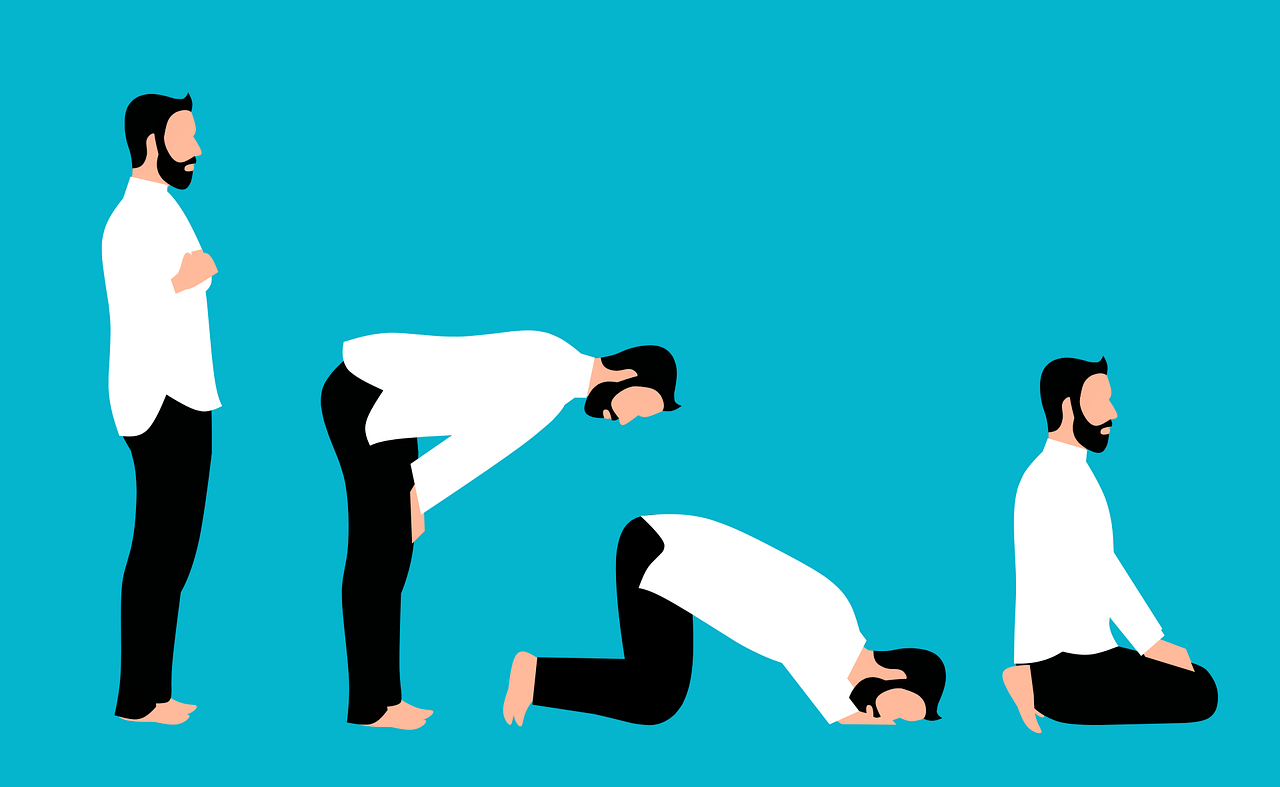Some of the Muslims with whom we come into contact completely misunderstand, or deliberately ignore the abundance of permissible differences allowed by Allah, the Judge. This has led to a perverse labelling of good Muslims as deviant or, even worse, as ‘off the straight path’. Some have travelled far to study the religion only to return with a harsher and more critical attitude than ever.
These harsh brothers we are referring to have confused matters of Aqeedah (creed) with matters of fiqh (Jurisprudence). If someone claiming to be a Muslim has done an act of worship that is clear polytheism — such as making supplication to a dead person — there is no difference of opinion on this matter. However, if a man is seen placing his hands below his navel while praying, it is not the place of a layman to allege that he is outside the fold of Islam or to label him as a deviant. Rulings about where to put one’s hands in salah, slight differences in performing ablution, and many other issues vary according to the Hanafi, Maliki, Shafi‘i, and Hanbali jurists.
One Ramadan, I prayed the special communal night prayers in the mosque. After two units, the brother standing next to me asked if he could have a word with me. He took me to the side and said, “I noticed in the prayer that you held your hands this way, and you only raised your hands when saying ‘Allah is the Greatest’ this many times, and when you recited the Islamic testimony of faith, you did this with your finger instead of that.” My question to him was, “When did you worship Allah during all this monitoring of my prayer?”
***
Fiqh is vast. Some of the main reasons for different opinions in fiqh among the great thinkers and educated scholars are the varying methods of analysis and deduction, the use of weak hadiths as supplemental proof by some scholars, the choosing of one hadith over another that seems to contradict it, and many other factors.
I have personally spent time with the likes of Shaykh Wasi Allah ‘Abbas, who is a teacher in the Sacred Mosque in Makkah, and Shaykh ‘Abdur-Rahman al-Ajlan, President of the Sharia Court in Qaseem in the Kingdom of Saudi Arabia, and never once did I hear a word of partisanship from their mouths. These scholars have their positions and their proofs, but they do not label as deviant those who follow other positions and proofs.
❝
Sadly, what we see today are brothers abandoning other Muslim brothers because of minor issues of fiqh.
The scholars have earned the right to utter the words, “That is not the correct position.” They may use these words concerning various issues of worship and the like, but if scholars express their opinion with these words, they certainly do not mean that every other position leads to the hellfire. Neither you nor I have the license to expound on the meaning of the scholars’ words such that we claim that people are ‘removed from the straight path’.
In 2006, while I studied briefly with Shaykh ‘Abdullah ‘Abdur-Rahman, one of the teachers of Usool ad-Deen at the University of Madinah, he mentioned the method and intention of inviting people to Islam and urging them to correct their belief and application. He said, “A product will never sell if you are harsh. Only good manners will sell a product. The ones you are calling should feel good and feel that you are concerned about them.”
Sadly, what we see today are brothers abandoning other Muslim brothers because of minor issues of fiqh. We do not advocate one particular school or another from the four major schools of Islamic jurisprudence. We only advocate tolerance for one another in matters where tolerance is obligatory.
If you do not understand different opinions, then the joke will be on you. You will leave the mosque frustrated because you think that all the men inside are making ablution and praying incorrectly. Moreover, you will frustrate your brothers in Islam by badgering, hounding, and harassing them constantly to do things your way.
You will constantly show your lack of study and your inability to appreciate knowledge. You cannot just listen to a lecture where a teacher or scholar gives his opinion on the correct way to make ablution, and then go to the mosque and attempt to correct everyone you see doing something different. The scholars do not recommend this, nor is it their aim to bring division. They state the position that they believe is the strongest, without negating the other valid positions. You cannot go further than that.
Excerpted from ‘4 Ways to Manhood’ by Taymullah Abdur Rahman



 Dr. Bilal Philips
Dr. Bilal Philips